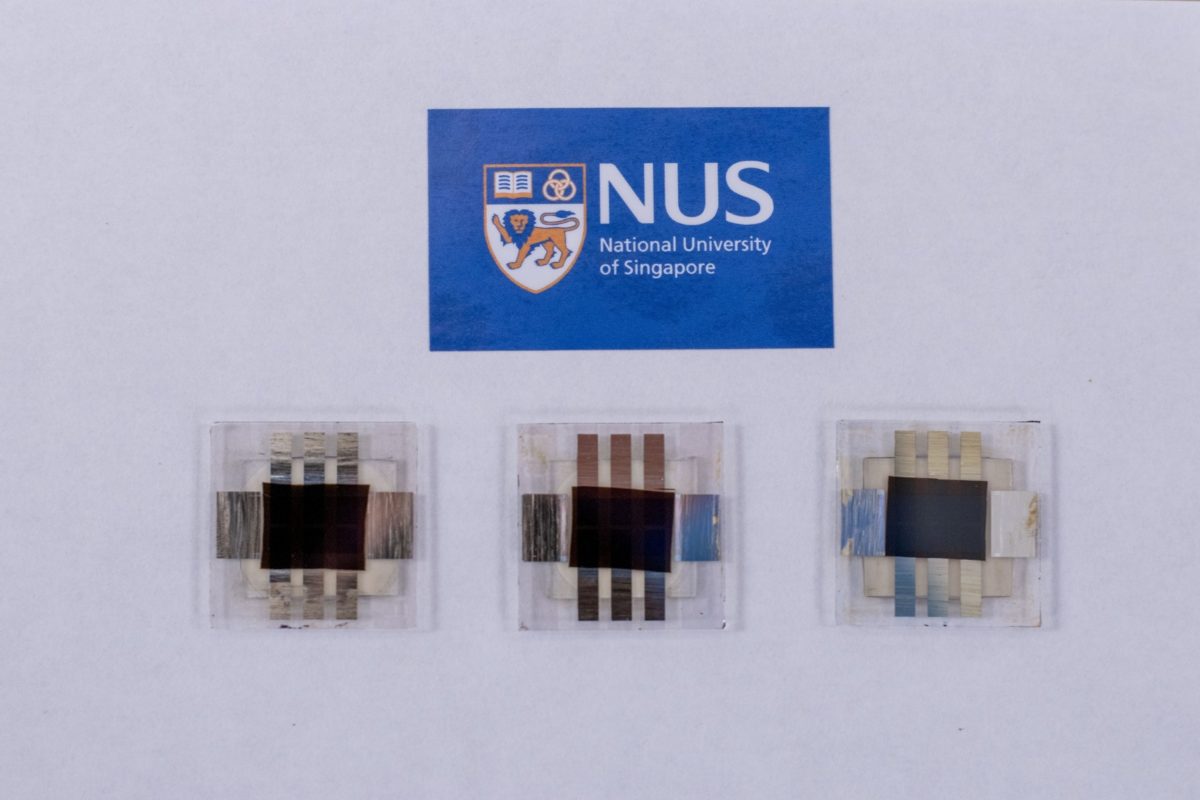National University of Singapore (NUS) researchers have fabricated a perovskite/organic tandem solar cell with an optimized interconnecting layer (ICL) structure based on a 4-nanometer sputtered indium zinc oxide layer.
They described the cell in “Monolithic perovskite/organic tandem solar cells with 23.6% efficiency enabled by reduced voltage losses and optimized interconnecting layer,” which was recently published in Nature Energy. It has lower voltage, optical and electrical losses compared to other tandem cells of the same kind, which are usually limited by open-circuit voltage losses in the wide-bandgap perovskite subcells.
The research team said that ICLs are crucial for the performance and reproducibility of a tandem cell. An effective ICL should be chemically inert, electrically conductive and optically transparent, they explained.
The perovskite subcell's nickel oxide hole-transporting layers were passivated with benzylphosphonic acid leads. The scientists did this to suppress interfacial recombination, which in perovskite cells has a deep influence on electrical performance, including open-circuit voltage, short-circuit current, fill factor, and ultimately, power conversion efficiency.
As a result, the subcell achieved a voltage up to 1.26V in a 1.79-eV-bandgap and the overall tandem cell efficiency reached 23.6%, a value that compares to around 20% in solar cells with the same tandem architecture.
“In addition, the tandem device retained 90% initial efficiency after 500 h maximum power point tracking under continuous one sun illumination,” the scientists said. “This technological breakthrough paves the way for flexible, lightweight, low cost and ultra-thin photovoltaic cells which are ideal for powering vehicles, boats, blinds and other applications.”
This content is protected by copyright and may not be reused. If you want to cooperate with us and would like to reuse some of our content, please contact: editors@pv-magazine.com.




By submitting this form you agree to pv magazine using your data for the purposes of publishing your comment.
Your personal data will only be disclosed or otherwise transmitted to third parties for the purposes of spam filtering or if this is necessary for technical maintenance of the website. Any other transfer to third parties will not take place unless this is justified on the basis of applicable data protection regulations or if pv magazine is legally obliged to do so.
You may revoke this consent at any time with effect for the future, in which case your personal data will be deleted immediately. Otherwise, your data will be deleted if pv magazine has processed your request or the purpose of data storage is fulfilled.
Further information on data privacy can be found in our Data Protection Policy.